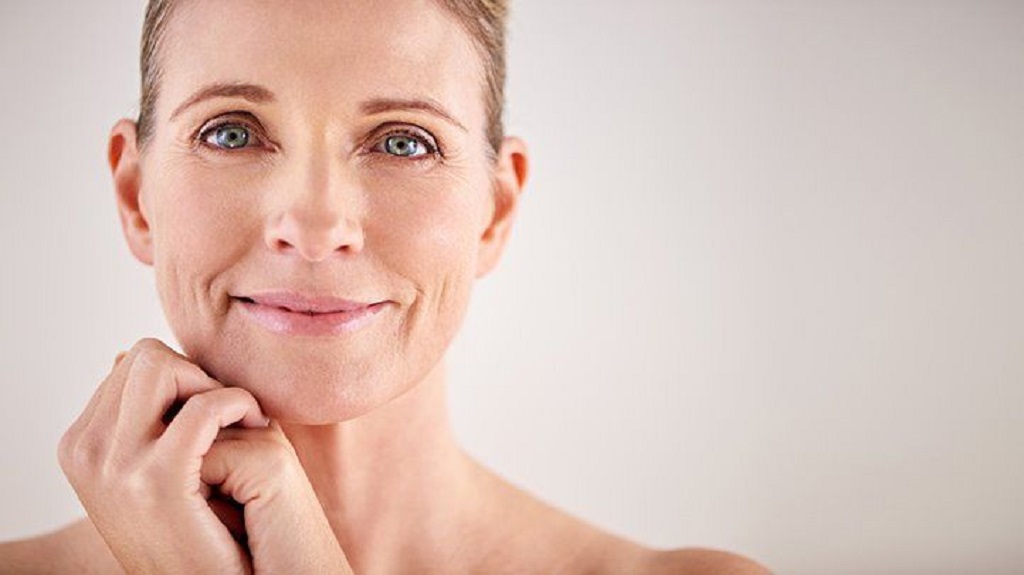Aging is an inevitable process that affects all aspects of our lives, including our skin. As we age, our skin changes, from decreased collagen production to increased susceptibility to environmental factors. However, with the proper knowledge and skincare routine, we can unlock the secrets of age-defying skin and maintain a youthful complexion.
In this expert guide to anti-aging skincare, we will delve deep into the science behind anti-aging, essential ingredients in anti-aging skincare, building an effective skincare routine, and debunking common myths and misconceptions.
The Science Behind Anti-Aging Skincare
The Role of Collagen and Elastin
Collagen and elastin are proteins that provide structure and elasticity to the skin. As we age, the production of these proteins decreases, leading to sagging and wrinkles. Anti-aging skincare products, such as peptides and retinoids, often contain ingredients that stimulate collagen and elastin production.
How Antioxidants Contribute to Skin Health
Antioxidants are potent compounds that protect the skin from oxidative stress caused by free radicals. Free radicals are unstable molecules that damage cells and accelerate the aging process. Incorporating antioxidants into your skincare routine can neutralize free radicals, reduce inflammation, and promote overall skin health.
Essential Ingredients in Anti-Aging Skincare
When it comes to anti-aging skincare, the key lies in the ingredients. Let’s explore some essential elements proven to turn back the clock on aging skin.
Retinoids
Retinoids, derived from vitamin A, are widely recognized for their anti-aging benefits. They stimulate collagen production, reduce the appearance of fine lines and wrinkles, and enhance skin cell turnover. Incorporating retinoids into your skincare routine can significantly improve the texture and tone of your skin.
Peptides
Peptides are short chains of amino acids that act as building blocks of proteins, including collagen and elastin. By incorporating peptides into your skincare products, you can promote collagen synthesis, improve skin elasticity, and diminish the signs of aging. Look for products that contain peptides to maximize their anti-aging properties.
Building an Effective Anti-Aging Skincare Routine
Now that we’ve explored the science and ingredients behind anti-aging skincare, let’s focus on building an effective skincare routine tailored to your skin type.
Choosing the Right Products for Your Skin Type
Everyone has unique skin needs, so choosing products that address your specific concerns is essential. Whether you have dry, oily, or combination skin, selecting the suitable cleansers, moisturizers, and treatments can make a difference in your anti-aging journey.
However, crafting an effective anti-aging skincare routine is more than mixing a cocktail of serums and creams. It’s about incorporating scientifically-backed treatments that target the root causes of aging, from fine lines to loss of elasticity. That’s where the experts at Honey Skincare Studio come in. As a leading med spa in Arlington, VA, they specialize in curating personalized anti-aging regimens that combine top-of-the-line skincare products with innovative treatments. Schedule a personalized consultation today, and allow Honey Skincare Studio to craft an anti-aging regimen that meets your aesthetic aspirations.
The Importance of Consistency in Skincare
Consistency is vital when it comes to anti-aging skincare. Regularly using products suited to your skin type and concerns will yield the best results. Consistency allows your skin to adapt to the ingredients and ensures you reap the full benefits of your skincare routine.
Common Myths and Misconceptions About Anti-Aging Skincare
The More Expensive, the Better
A high price tag doesn’t necessarily equate to a more effective product. It’s essential to look at the ingredient list and the concentration of active ingredients rather than the price. There are many affordable products with effective anti-aging ingredients like retinol, hyaluronic acid, and peptides.
The Earlier You Start Using Anti-aging Products, the Better
While it’s never too early to take good care of your skin, it’s not necessary to start using anti-aging products in your early 20s. A more straightforward regimen focusing on sun protection, hydration, and a healthy lifestyle can be more beneficial. Anti-aging products can be introduced as you approach your 30s or based on individual skin needs.
Anti-aging Products Can Erase All Signs of Aging
Anti-aging products can help reduce the appearance of fine lines, wrinkles, and other signs of aging, but they cannot erase them completely. Consistent use can certainly make a difference over time, but realistic expectations are key. Procedures like Botox or fillers, performed by professionals, can provide more dramatic results.
Natural or Organic Products are Always Better
While natural or organic products can be less irritating to the skin, they aren’t always more effective in treating signs of aging. The efficacy of anti-aging treatments comes from active ingredients that have been scientifically proven to work, whether they are synthetic or natural. Furthermore, not all natural or organic ingredients are safe for all skin types, and some can cause irritation or allergic reactions.
Final Words
Unlocking the secrets of age-defying skin is an ongoing journey requiring knowledge and dedication. By understanding the aging process, utilizing the power of science-backed ingredients, building a personalized skincare routine, and avoiding common myths and misconceptions, you can embark on a path to youthful, radiant skin. Remember, consistency and patience are essential, and with this expert’s guide to anti-aging skincare, you’re well on your way to unlocking the secrets of age-defying beauty.




